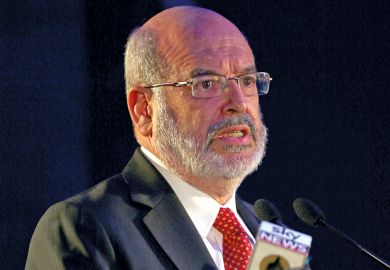Calls for evidence-informed policymaking have grown louder in recent decades. Advocates argue that the systematic and honest use of the best available scientific evidence can help us avoid harm and achieve social policy goals. But the recent closure of an experiment into the efficacy of a universal basic income underlines how hard it is to get there from here.
Basic income is a radical idea that involves the state's providing all citizens, regardless of economic or employment status, with a certain level of income – potentially as a way to offer more security in the face of workforce casualisation and the rise of robots and artificial intelligence. Pilots are taking place in a number of places around the world, including Finland, Barcelona, the Netherlands and – until this summer – Ontario.
The problem is that public policymaking is qualitatively different from technical decision-making. For example, deciding whether to license a new childhood vaccine rests on the answers to a set of well-understood technical questions: Is the vaccine effective at lessening the number and severity of cases of the disease in question? Do the benefits outweigh the potential harm? And (sometimes) is the new vaccine cost effective?
If, however, we want to decide whether to make the vaccine mandatory, an entirely new set of questions must be addressed. Does the state have the right to compel vaccination or should parents be able to decide for their young children? At what age should a child be asked for assent? Do the rights of vulnerable people who might be infected by unvaccinated children take precedence over the rights of individual families to refuse vaccination? Should public health take precedence over the rights of religious or cultural minorities? These questions reflect social values and, in a pluralistic society, there is no unambiguous set of answers.
With this distinction in mind, it should come as no surprise that the basic income experiments have set the stage for some monumental misunderstandings between researchers and policymakers. In Ontario, these issues came to a head when the planned three-year Basic Income Guarantee Experiment was cancelled after the election of a new Progressive Conservative provincial government, barely three months after sampling was complete.
Trained to focus on answerable questions, academics attempt to depoliticise the science so that the evidence that they gather will not be misused or misrepresented. They focus on questions of appropriate sampling, experimental design and the limits to generalisation. But policymakers worry that the experiments themselves privilege certain kinds of evidence and shift the political debate away from the social values and political issues that should be central.
On 31 July, Lisa MacLeod, Ontario’s minister for children, community and social services, said that the “broken” basic income experiment was not working. Since no evidence had been collected beyond the baseline survey, baffled researchers pressed her to explain. She complied: “When you’re encouraging people to accept money without strings attached, it really doesn’t send the message that I think our ministry and our government wants to send. We want to get people back on track and be productive members of society where that’s possible.”
In other words, the government simply was not interested in whether basic income improved physical and mental health, food security, financial decision-making, educational attainment or success in the job market. The very idea of “money for nothing” apparently offended its political and social values, which include being seen to enforce employment no matter what the costs or consequences might be.
The experiment had been approved by an ethics board that required its participants to give informed consent. Enrolments stood at 6,000, and 4,000 participants had signed letters promising them a basic income for three years. The media reports of the cancellation made no mention of how they would be transitioned off the funding. Researchers, used to the oversight of ethics boards, expected the ministry to communicate with participants and to seek the board’s advice on how to minimise the harm to them. But politicians are used to turning off the funding tap on demand. The ministry was caught in the middle, and, for a full month, participants had no idea what would happen next.
Yes, politicians are ultimately answerable to the diverse electorates that they serve. However, civil servants and politicians who engage in research have additional and specific obligations to vulnerable human research subjects, and should pledge to abide by the same ethics guidelines that govern academics.
Evidence-informed policy is a laudable goal, but our experience in Ontario suggests that academic researchers must be wary of partnering with government researchers when the outcomes are politically sensitive – particularly when the funding is under political control. Establishing an arm’s-length body to oversee the experiment, disperse the funds and publish the results would be a much better alternative.
Evelyn L. Forget is a professor in the department of community health sciences and academic director of the Manitoba Research Data Centre at the University of Manitoba. She is author of Basic Income for Canadians: the Key to a Healthier, Happier, More Secure Life for All (James Lorimer and Co) and a contributor to EvidenceNetwork.ca, based at the University of Winnipeg.
POSTSCRIPT:
Print headline: When political values collide with research protocols, be afraid
Register to continue
Why register?
- Registration is free and only takes a moment
- Once registered, you can read 3 articles a month
- Sign up for our newsletter
Subscribe
Or subscribe for unlimited access to:
- Unlimited access to news, views, insights & reviews
- Digital editions
- Digital access to THE’s university and college rankings analysis
Already registered or a current subscriber?







